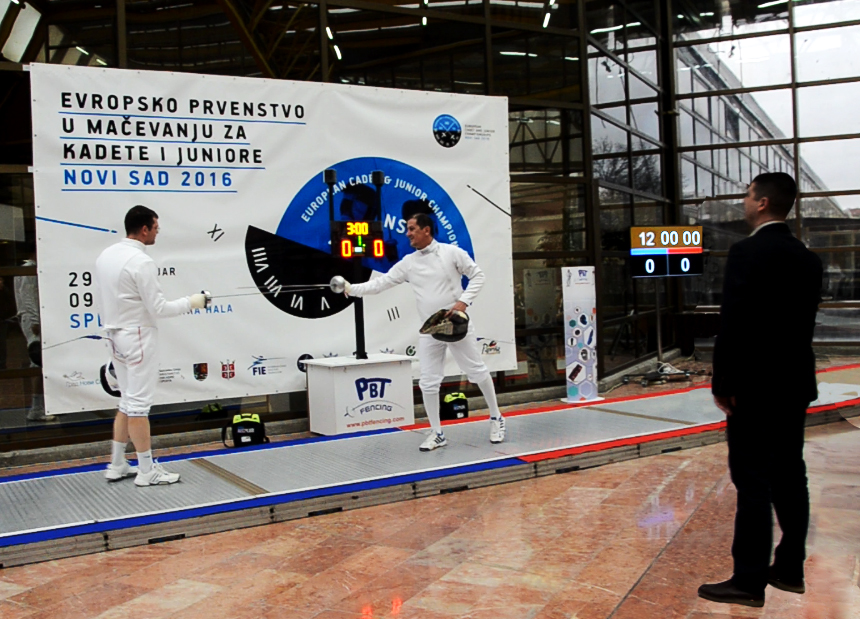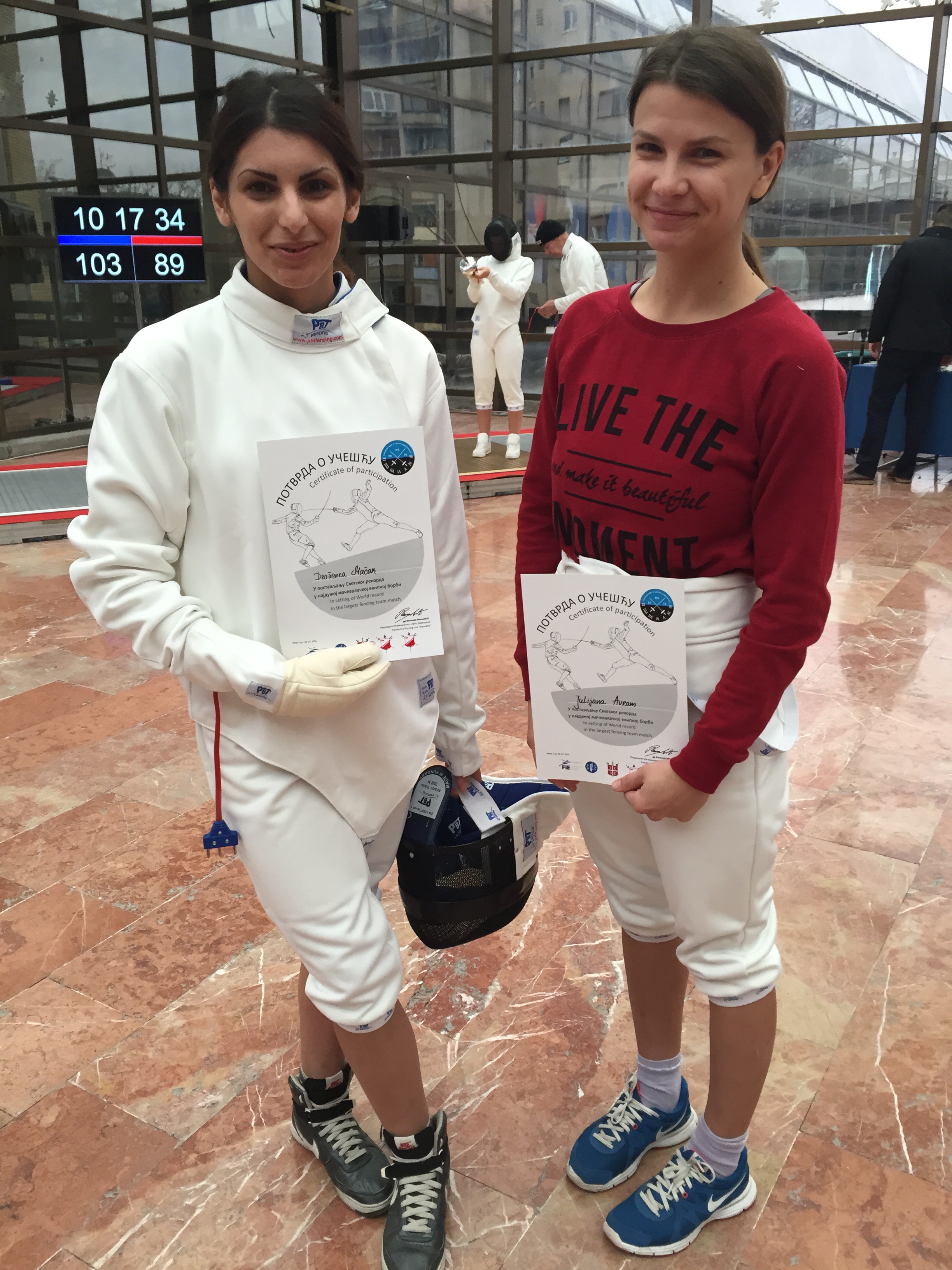NOVI SAD, Serbia (March 4) – Serbia set a world record for the longest team fencing bout in history on Friday as 188 fencers from all walks of life took turns to duel for 12 straight hours.
The record event, arranged jointly by the Serbian Fencing Federation and the organizing committee of the European Championships for juniors and cadets, was held on a show piste in a public hallway of the SPENS sports complex in Novi Sad, Serbia’s second-largest city.
“From the beginning I didn’t expect so many people,” said Dumitrov Veselko, the technical director of the Serbian Fencing Federation who was responsible for the record event.
“But in the end, [more than] 180 names were on the list. Everybody tried to play fencing. Many people were delighted. Even the sponsor got to play with a world champion,” he added.
Veselko, a renowned coach with 35 years in fencing, kicked off the event at 7 a.m. by beating local businessman and event supporter Dejan Ruski 5-3 in a fun encounter that set the tone for the rest of the day. Dusk had set in by the time 2007 world épée champion Krisztián Kulcsár got the final touch to make the score an incredible 803-800, dwarfing the regular first-to-45 team scores.
Olympic silver medalist Claudia Bokel, a member of the IOC Executive Board and chair of the IOC Athletes’ Commission, was there to see the final touch.
“To attract people to the sport and have side events like this is amazing,” she said. “Twelve hours of fencing and you don’t fence against the same person – even the sports director was fencing, the sponsors were fencing, and lots of people from the general public. It’s amazing – the best way to experience the sport is to do it yourself.”
Among the participants were young fencers taking part in the European Championships for cadets and juniors, which were running concurrently in the adjacent hall, their coaches, parents, and supporters, local students, journalists and passers-by who picked up a pamphlet.
People who had never seen an épée up close, let alone thrust one in anger, did battle on the piste, opening up the sport to new audiences.
“It’s not important that it’s a world record, it’s important that there are all kinds of people here,” said 71-year-old Macedonian Alexandar Anastasov, a leading fencer in the 1970s, after one of his bouts.
Many of the 188 participants fenced several times throughout the day, but never against the same opponent twice. Organizers brushed off the fact that the record was unofficial, saying the media coverage received and the public interest generated by the event was of far greater significance.
The bouts on the piste ranged from highly skilled affairs right through to total novice match-ups. Complete amateurs faced off against seasoned veterans. One particularly cavalier lunge nearly cost one fencer her hamstring.

Veselko, meanwhile, shared his thoughts on why events like these were necessary to promote fencing.
“A competition is a competition, a hall is a hall – it’s the same anywhere in the world,” he began. “Where you can make a difference is around the event. We need to engage the public. This is why we have a world record attempt. Anyone can try. Journalists are calling me now,” he said, waving a vibrating smartphone. “They came to cover the event but they want to take part themselves,” he added.
Still sweating from her first experience on the piste, 22-year-old student Drazenka Macak shared her impressions of a sport she’d come into contact with for the first time.
“It is very, very interesting,”Macak said between breaths. “You have to anticipate very well. The time goes by so quickly,” she added.
Her opponent, fellow student Juliana Avram, chimed in: “It’s over before you know it.”
Anastasov, the septuagenarian who claims to be the world’s most active veteran fencer, noted: “The main thing is that people come away with an understanding of the psychological and physical qualities you need to become a fencer.”
Organizers, meanwhile, hope other cities will attempt to break the record.
“This is an important social endeavour. We need to be creative in promoting fencing, in helping people understand the sport and enjoy it,” Veselko said.
